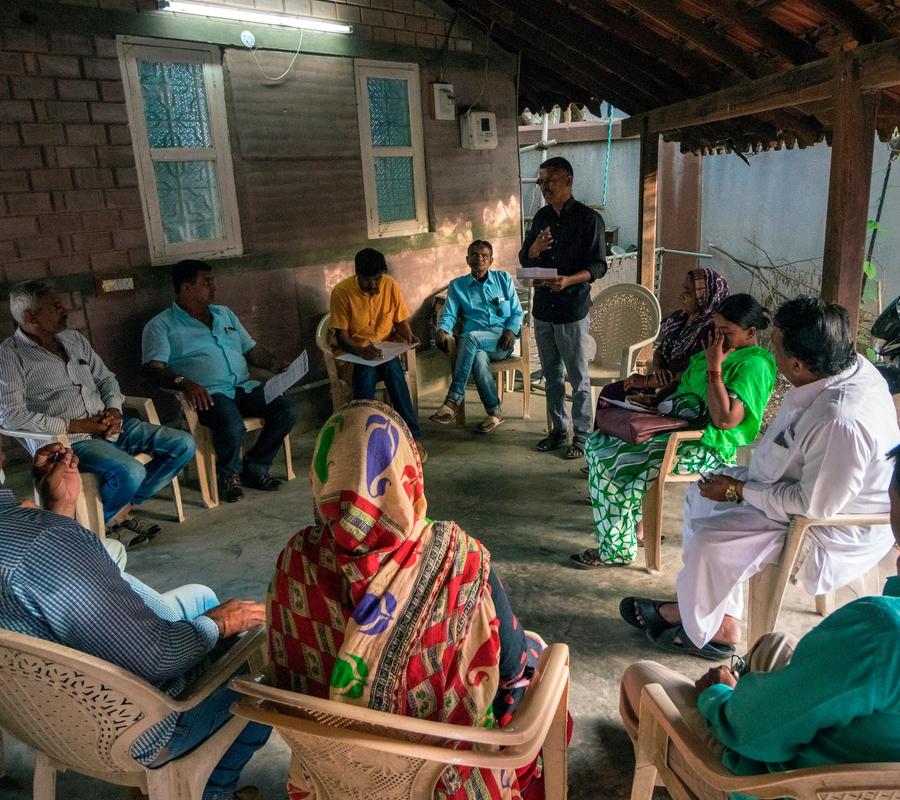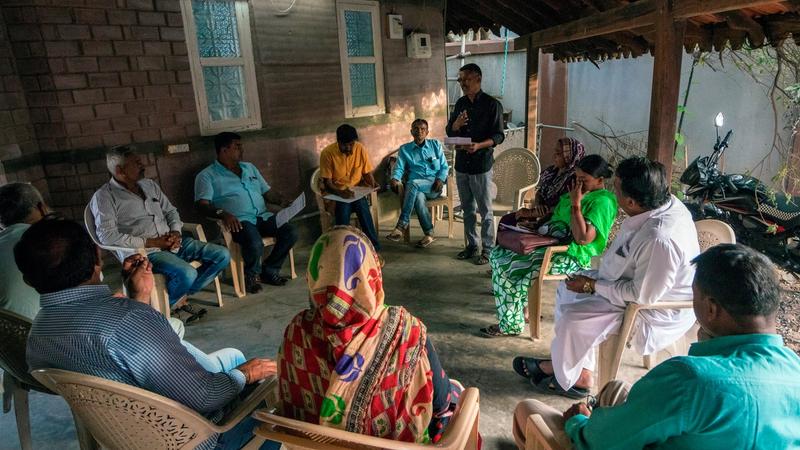Our Work
Participatory Governance
We work to increase people’s participation and strengthen democracy through decentralisation of civic powers.

Our initiatives
We take action where it matters most
Context
The 74th Constitutional Amendment (1992) envisioned decentralised governance through ward committees in cities. However, cities like Bhuj—below the 3 lakh population threshold—were left without clear guidelines. As a result, citizens often felt excluded from planning, service delivery, and decision-making.
To bridge this gap, HIC's partner organisation Setu Abhiyan, has been mobilising residents to form ward committees since 2010. Today, 10 out of Bhuj’s 11 wards have active citizen-led committees, transforming how people engage with their local government.
Our Interventions
- Formed functional ward committees in 10 wards, involving over 7,000 households.
- Built capacity of citizens to identify priorities issues, monitor development works, and submit annual ward plans to the municipality.
- Regularly updated citizens about the government's social security and urban development schemes.
- Facilitated locally decided initiatives through transparent, consensus-based ward planning, budgeting, and service delivery.
Our Impact
- Over ₹9 crore worth of public works sanctioned based on ward plans.
- Bringing the local councillors, municipality and citizens together to hold dialogue, build accountability and resolve issues faced by citizens.
- Citizens have been proactive in the functioning of the ward committees, raising their issues with the councillor and taking responsibility for their wards.
- Set a precedent in the country for the successful implementation of the 74th Amendment Act and decentralised participatory governance, despite the lack of legal mandate for a small town like Bhuj.
Partners Involved
 Setu Abhiyan
Setu Abhiyan 
Role of Ward Committees in ensuring Participatory Governance in Bhuj